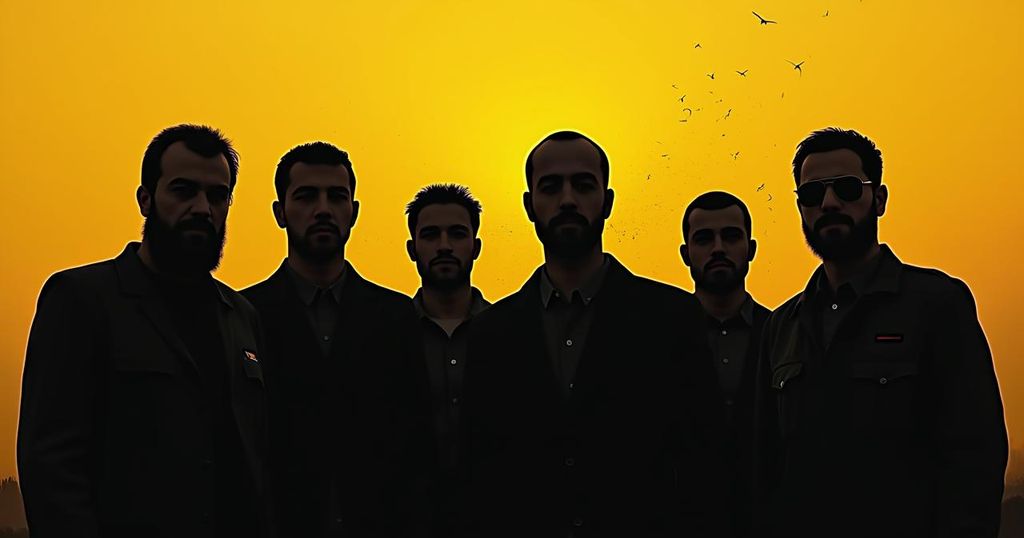In recent Israeli airstrikes, seven high-ranking Hezbollah officials were killed, including leader Hassan Nasrallah, marking a significant escalation in the Israel-Hezbollah conflict. This move has profound implications for Hezbollah’s military and political structure as the group attempts to recuperate from these losses.
In the past week, Israeli airstrikes in Lebanon have resulted in the deaths of seven top-ranking officials from the Hezbollah militant organization, including the group’s leader, Hassan Nasrallah. This series of attacks has reverberated across Lebanon and the broader Middle East, leading to expressions of shock as Israeli authorities announced significant military successes. The clashes represent a notable escalation in the ongoing conflict in the region as Hezbollah opened combat operations in response to its ally Hamas’s recent incursion into southern Israel. The airstrikes have inflicted considerable losses upon Hezbollah, an entity that has been central to Lebanese military and political dynamics since the early 1980s. Among the deceased was Hassan Nasrallah, who had led Hezbollah since 1992 and was a crucial figure responsible for the organization’s evolution into a formidable political and military force in Lebanon and the region. Nasrallah’s tenure saw Hezbollah emerge as a key actor in various regional conflicts, including the Syrian civil war. In addition to Nasrallah, notable figures killed included: – Nabil Kaouk, deputy head of Hezbollah’s Central Council, who had been seen as a potential successor. – Ibrahim Akil, a top commander of the Radwan Forces and a member of Hezbollah’s highest military body, known for his historical role in the bombing of the U.S. Embassy in 1983. – Ahmad Wehbe, a commander crucial to Hezbollah’s operations over the past two decades. – Ali Karaki, who led the southern front operations of Hezbollah. – Mohammad Surour, head of Hezbollah’s newly formed drone unit, which had recently engaged Israeli targets. – Ibrahim Kobeissi, who led the missile unit and was involved in past attacks against Israeli forces. The loss of these commanders is compounded by additional casualties among key Hezbollah affiliates who were assassinated by Israeli military actions in preceding months. As the organization attempts to regroup following these critical losses, attention has turned to remaining senior figures such as Naim Kassem, the deputy leader, and Hashim Safieddine, who is considered a potential candidate to succeed Nasrallah. The current state of Hezbollah reflects a significant pivot in the balance of power in Lebanon and bears implications for the ongoing conflict with Israel. The recent assassinations underscore the vulnerability of Hezbollah leadership while also illustrating the strategic intent of Israel to dismantle the organization’s military capabilities.
The recent Israeli airstrikes in Lebanon mark a pivotal moment in the ongoing conflict between Israel and Hezbollah, considerably impacting the militant group’s structure and operations. Over the past week, significant figures within Hezbollah have been targeted, culminating in the death of its prominent leader, Hassan Nasrallah, among others. This represents a substantial escalation in hostilities amid a broader regional conflict involving Hezbollah’s support for Hamas. The fallout from these airstrikes has placed Hezbollah in a precarious position, forcing it to reassess its military strategies and leadership dynamics.
In summary, the assassination of seven high-ranking Hezbollah officials, including leader Hassan Nasrallah, represents a significant setback for the organization amid escalating conflict with Israel. The military strikes have altered the operational landscape for Hezbollah, revealing vulnerabilities in its leadership structure and raising questions regarding its future strategic direction. As remaining leaders like Naim Kassem assume greater responsibilities, Hezbollah faces the daunting challenge of reestablishing its operational effectiveness in the wake of these profound losses.
Original Source: www.nbcphiladelphia.com







